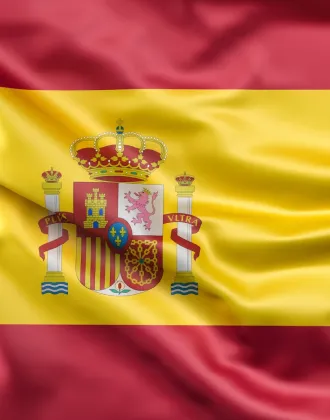
Crypto license in Portugal
Professional turnkey assistance in obtaining a crypto license in Portugal and guarantee of results
Companies providing services related to digital currency in Portugal must obtain a cryptocurrency license for this activity. A Portugal crypto license is a mandatory document confirming a business’s certification, verification, reputation, and reliability, enabling entrepreneurs to work legally in Portugal.
Unlike most jurisdictions, NO minimum share capital is required to obtain a crypto license in Portugal. In addition, there are NO restrictions and requirements for declaring cryptocurrency assets and taxation of income from cryptocurrency for individuals.
Companies wishing to engage in crypto-currency activities in Portugal are classified as VASPs (Virtual Asset Service Providers) and must obtain a license from Banco de Portugal before operating. This body is responsible for compliance with AML/CFT rules aligning with European Union directives.
Cryptocurrency companies in Portugal can legally engage in the following activities: exchange virtual and financial assets, including crypto-to-fiat exchange services, including US dollars; conversion of virtual assets; transfer virtual assets; preservation, security, and management of virtual assets, including tools for controlling, storing and providing access to them, such as private cryptographic keys.
To obtain a crypto license Portugal defines the following requirements: registering a local enterprise, opening a current account, etc.

Find more information about the Crypto License in Portugal
Advantages of a cryptocurrency license in Portugal
Loyal jurisdiction
Portugal has been included in the list of the most digital asset-friendly countries for 2020-2021. In this country, it is possible to officially register a cryptocurrency business, having received appropriate permission from government regulators.
No requirements for the minimum authorized capital of the company
Unlike many countries, the government does not set minimum share capital requirements for companies that plan to obtain a cryptocurrency license in Portugal. This advantage makes the country more accessible to small and medium enterprises.
No obligation to declare cryptocurrency assets
Crypto license holders in Portugal have greater freedom to manage their assets, simplify administrative procedures, and attract investors. The country has an attractive and reliable jurisdiction for preserving and operating cryptocurrency assets.
Autonomous Region of Madeira
Madeira is an autonomous region, fully integrated into Portugal’s economic and political system, but with its own tax and corporate laws. Businesses registered in Madeira under the IBCM (low tax) regime can take advantage of a reduced income tax rate until 2027 and extend this right until 2035.
No taxation (Madeira)
Companies registered under the IBCM regime in Madeira are exempt from tax on the payment of dividends, which is 0%. This feature also applies to dividend payments to shareholders (who are not residents) and income from subsidiaries. The paying company must hold at least 10% of the subsidiary’s capital during the year to avoid taxation of income gains or dividends.
Request more information about the Crypto License in Portugal
Packages of services for crypto license in Portugal
Full set up of VASP business with all the necessary infrastructure, connection to KYC providers, local substance, and accounting services
- Full turnkey company formation assistance
- NIF (Tax Identification Number)
- Registration of the Beneficial Owner (RCBE)
- Legal address for 1 year
- Corporate account opening assistance
- Registering share capital
- Crypto license application
- Corporate documents translated with Apostille
- Developed AML/KYC Policies
- Search, integration, direct employment agreement for experienced, local AML/KYC Officer
- Accounting services for 1 year
- Legal Opinion
- Setting up KYC/KYT Provider
- Search for premises for rent
Exhaustive set up of company infrastructure for the start of operational activity
- Full turnkey company formation assistance
- NIF (Tax Identification Number)
- Registration of the Beneficial Owner (RCBE)
- Legal address for 1 year
- Corporate account opening assistance
- Registering share capital
- Crypto license application
- Corporate documents translated with Apostille
- Developed AML/KYC Policies
- Search, integration, direct employment agreement for experienced AML/KYC Officer
Registration under the minimum regulatory requireme
- Full turnkey company formation assistance
- NIF (Tax Identification Number)
- Registration of the Beneficial Owner (RCBE)
- Legal address for 1 year
- Registering share capital
- Crypto license application
- Corporate documents in Portuguese language
- Standard AML/KYC Policies


Requirements for obtaining a cryptocurrency license in Portugal
To obtain a crypto license in Portugal, you need to follow these steps:
- Have copies of documents of all founders certified by a notary;
- Provide an apostille power of attorney for company registration;
- Provide proof of citizenship of all founders in the form of certificates;
- Find a local office and sign a rental agreement;
- Portuguese citizenship for at least one director of the company;
- Availability of a AML officer;
- Develop policies for controlling transactions with cryptocurrency and other documents required by law;
- Prepare a package of documents required for applying;
- Apply for a license.
Procedure for obtaining a Cryptocurrency License in Portugal
COLLECTION OF PRELIMINARY DOCUMENTS + TAX IDENTIFICATION NUMBER APPROVAL
Stage 1
Documents required:
- Preferred company name
- Passport copies from all shareholders and directors
- Utility bills from all shareholders and directors
- CVs of shareholders and directors
- A business model of the company (brief description 1-2 pages)
- Power of attorney
- Representation Statement
REGISTRATION AND LICENSING PROCESS
Stage 2
- Creation of NIF Company
- Incorporation of the company:
- draw up the company’s articles of association
- draft the power of attorney for the opening of the company and the opening of the company’s bank account
- certify the power of attorney for the acts (without this certification we cannot open the account nor open the company)
- deliver all the papers to the registry office and ask first for the name, after the name is confirmed we can open the company with the name that was accepted.
LICENSE APPLICATION
Stage 3
ISSUANCE OF CORPORATE DOCUMENTATION
Stage 4
- RCBE (The Central Registry of Beneficiary Effective (RCBE) intends to identify all the people that control a company, fund or other legal entity) is mandatory.
CORPORATE ACCOUNT OPENING
Stage 5
- Analysis of the most suitable Banks/EMIs, comparison of the risk appetite of the Bank in relation to the risk appetite of the Client based on previously prepared AML policies
- Collection of necessary documents from the Client side to initiate the process (flow of funds, source of wealth, description of the purpose of opening an account, key partners, company website, utility bill, etc.)
- Guiding the Client’s company through the entire process of opening an account
Remark: Authority (Bank of Portugal) has the rights to request for more documents if deemed necessary.
Overview of a Portugal cryptocurrency regulation
| Project time frames | 5 to 7 months |
| State fee for application | 475€ |
| Required share capital | 0$ |
| Corporate income tax | 21% |
| Annual supervision fee | 0$ |
| Local staff member | Local Director |
| Physical office | Required |
| Accounting audit | Required |
| Sustainability | Not Sustainable |
| Bank account options | European EMIs |
Registration of a crypto company in Portugal
The first step is to choose the form of the enterprise, which can have a classic tax system or a low tax regime in Madeira. In addition, the company must pay registration fees and receive several additional services, such as a tax number (NIF) for a partner/director, mail service and business address (legal), and a VAT number.
To register a company, you must provide a package of documents:
- A copy of the partner’s/shareholder’s and founders’ passports, which must be certified by an apostille or have consular legalization;
- A document confirming the address of registration, for example, a statement of payment of utility bills, a bank statement confirming the address (up to 3 months), as well as other documentation;
- A document which confirms your tax residency country and number;
- Certificate of no criminal record of the beneficiary/founder;
- AML documentation.
The process of creating a crypto company in Portugal:
- Determination of goals and objectives of the business, choice of activities, and development of a business strategy. It will help formulate the project concept and develop an action plan for the long term.
- Choosing a company name and checking the availability of the selected name in the trademark register to avoid problems in the future. Important: 3 company names must be proposed, which must not be repeated with already registered companies in Portugal.
- Collect information about the enterprise’s beneficiaries, founders, and managers to prepare the necessary documentation.
- It is necessary to find an address for registering a crypto company that meets the requirements of regulatory authorities.
- Formation of registration and constituent documentation. For example, the charter, the conclusion on the organization’s creation, the minutes of the constituent assembly, and several other documents.
- Development and formation of packages of the necessary documentation for applying for registration with regulatory authorities.
- After verification and approval of the documents, the regulatory authorities carry out the state registration of the crypto company.
- After obtaining state registration, it is necessary to register for employment and tax purposes. It includes recording with the tax office, obtaining appropriate licenses and permits, and signing employee contracts.
- Additional licenses and permits may be required depending on the crypto company’s activity direction.
Once the company is incorporated, additional documentation must be submitted to open a Portuguese bank account, including the following:
- the original agreement on the establishment of the company;
- an extract from the government register record of the company;
- an extract with information about the beneficiaries registered in the relevant register;
- full name of the parents of the account holder;
- phone number;
- e-mail.
Risks associated with cryptocurrency business in Portugal
According to a report by the Bank of Portugal, the operation of crypto companies is associated with several risks that may affect users of virtual assets and other market participants.
- One of the main risks is that virtual assets are not legal tender in Portugal and cannot be required to be accepted at face value. Moreover, such assets do not have legal protections that give consumers the right to repurchase when using virtual assets to make payments.
- Another risk is the possibility of total or partial impairment of virtual assets, which may lead to user losses. In this case, there is no fund to cover these losses, and users are forced to bear all the risks associated with transactions using virtual assets.
- Users of virtual assets may face the risk of losing their funds on the trading platform.
- Finally, virtual assets can be used in criminal activities, including financing terrorism or money laundering, which poses a serious risk to users and all market participants.
Therefore, Banco de Portugal recommends that all potential virtual asset users exercise caution and thoroughly analyze all risks associated with operations in the cryptocurrency market.
Regulation of cryptocurrency business in Portugal
Cryptocurrency business in Portugal is subject to government regulation, taking into account measures to prevent money laundering and terrorist financing. In the last decade, the Portuguese government has created a favorable investment climate for IT activities, which has led to an increase in the number of companies in this field and greater use of cryptocurrencies in the country. Individuals investing in cryptocurrencies are not subject to income tax.
It is important to note that virtual currencies are not legal tender in Portugal and are not considered fiat currency, money (physical), or e-money. The European Banking Authority (EBA), in its report dated January 9, 2019, also pointed out the restrictions on when virtual currencies can be considered “electronic money,” which are defined in Directive 2009/110 / EU (EMD2), subject to the criteria set out in EMD2.

Cryptocurrency legislation in Portugal
The Central Bank of Portugal, Banco de Portugal, is the country’s primary regulator of virtual currencies. The CMVM (Comissao do Mercado de Valores Mobiliarios) and ASF (Autoridade de Supervisao de Seguros e Fundos de Pensoes) are also responsible for the supervision of their respective areas.
Since 2013, BdP, acting as a central bank and national supervisory authority for credit and payment institutions, has shown an interest in cryptocurrencies, especially in protecting consumers and investors. However, BdP emphasized that it will not take ill-advised steps to regulate virtual currencies in Portugal but rather take a cautious approach to this phenomenon and its development.
In September 2020, Banco de Portugal announced the introduction of supervision of organizations involved in managing virtual assets and cryptocurrencies, according to a law developed based on the European directive on preventing money laundering and terrorist financing. The BdP is currently responsible for registering organizations that provide virtual asset exchange services, virtual asset transfer services, and secure storage and administration of cryptocurrencies.
BdP actively regulates virtual currencies in Portugal and monitors compliance with regulations to prevent money laundering and terrorist financing. However, the central bank limits its actions only to these areas and does not intervene in other areas, such as prudential or behavioral control.

Taxation of Cryptocurrency Companies in Portugal
To date, no specific legislation in Portugal regulates the tax environment for cryptocurrencies. It raises a lot of questions and uncertainty.
The Tax Authority of Portugal (Autoridade Tributária) set out all the information about the taxation of cryptocurrencies in two doctrines: No 14910 and case No 5717.
Tax regulation for cryptocurrency companies can be divided into three sections: IRS tax environment, IRC tax environment, and VAT.
Tax environment at the IRS
There are three categories of income in the IRS tax environment generated by virtual currencies at tax return levels:
- Category B – income from corporate or professional activities;
- Category E – income from capital;
- Category G – capital gains.
Since 2016, the Autoridade Tributária (Portugal tax authority) has not changed its position regarding paying cryptocurrency taxes. Income received by individuals from the sale of cryptocurrencies is not taxable either as income tax or under category E (capital gains) or category G (increase in equity).
However, if sales income becomes regular, it will be treated as professional or business income and taxed at a progressive tax rate. In such a case, the income will be taxed as income in category B.
What to do about income from capital in category E? Taxation that falls into this category corresponds to a situation where we regularly buy or sell cryptocurrencies and receive income from the sale of property rights.
Corporate or professional income in category B is declared only if virtual asset sales occur in the ordinary course of business. In this category, income will always be taxed as a function of doing business, not on a means of payment basis.
You do not need to worry about the tax base if you sell cryptocurrencies outside your main professional activity. However, if cryptocurrencies are your primary business, you must comply with declarative obligations. It is crucial to understand that, in this case, you must always issue invoices or receipts for each sale or service. In this case, your activity should be taxed by the law specified for category B.
Tax environment in the IRC
When there is no information on the taxation of cryptocurrencies in Portugal for the IRC category, we can refer to article 1717 CHC, which regulates all the points provided by the government in the direction of taxable income.
In this regard, it must be considered that the taxation of profits is defined as the algebraic sum of net income for the period, and positive and negative changes are not considered.
These factors are determined on an accounting basis and may be adjusted by the CIRC.
Based on this information, we can conclude that any income the company receives must be recorded in financial accounting. This means that a portion of your taxable income must also be paid under the IRC, as these are part of your taxable income.
VAT
Understanding a few details regarding regulating value-added tax (VAT) on cryptocurrencies is essential. A reward in the form of a cryptocurrency is considered a service, which, although subject to VAT, is not yet subject to this tax.
For example, when you exchange cryptocurrencies for euros (or other currencies), this is considered a service. Still, it is exempt from VAT since subparagraph D of paragraph 27 of Article CIVA establishes this feature. In this regard, when accounting for cryptocurrencies in a fiscal environment, you should consider these details.
While the Portuguese government and the Central Bank of Portugal do not support virtual currencies, regulating their functionality in the country recognizes other types of tokens, such as utility and security tokens, often sold through ICOs.
Commercial activities related to the issuance and trading of virtual currencies in Portugal are not prohibited. However, all transactions with crypto assets are monitored to prevent money laundering and terrorist financing.
An interesting fact is that the Portuguese government itself issued its own GOVTECH token in 2018. This token was used to vote between competing government-backed projects to determine the best project in a technology competition.
On March 5, 2020, the Portuguese government took an important step toward creating favorable conditions for the development of cryptocurrency startups. Framework principles have been established to make the Portuguese Regulatory Sandbox, which gives FinTech legal entities developing new products the opportunity to test them in a limited environment without the risk of violating applicable laws.
However, the most crucial turning point in the state regulation of the crypto business in Portugal was implementing national legislation of the Fifth EU Directive 2018/843 on combating money laundering and terrorist financing in the crypto assets ecosystem. As a result of the adoption of Law No. 58/2020, Law No. 83/2017 of August 18, 2020, known as the “Law on Combating Money Laundering and Terrorist Financing” (AML / CFT Law), as amended, which made it possible to transfer the requirements of the Fifth Directive to the national legislation.
Today, cryptocurrencies in Portugal are not considered a means of payment but are still controlled to prevent money laundering and terrorist financing. Banco de Portugal and other regulators continue to tighten their grip on the cryptocurrency market in the country, allowing for a more precise definition of rules.
FAQ About Crypto License in Portugal
How much does a crypto license cost in Portugal?
The cost of registering with Banco de Portugal (obtaining a license to work with cryptocurrencies), including developing appropriate AML and KYC policies, starts from 9460 euros. You can get a more accurate calculation by contacting us for a consultation.
Is cryptocurrency regulated in Portugal?
Yes, cryptocurrency is regulated in Portugal. Banco de Portugal has established rules that govern the operation of cryptocurrencies, including requirements for AML (anti-money laundering) and KYC rules, as well as licensing of crypto-currency service operators.
Is Portugal tax-free for cryptocurrencies?
For individuals, cryptocurrency is not subject to income tax, but for commercial companies, income tax is still levied. Profits from the sale of cryptocurrencies may be taxed up to 28%, and value-added taxes may also apply when purchasing goods and services. However, there is a tax incentive program for resident private investors.
Do I need to declare cryptocurrency in Portugal?
In Portugal, cryptocurrencies do not need to be declared, and transactions are not required to be reported unless they are above a threshold set by the government. But if the transactions are carried out by persons subject to AML law, suspicious payments should be reported.
How to get a cryptocurrency license in Portugal?
To obtain a crypto license in Portugal, a company must provide a developed business plan, confirm the company’s registration, and provide certificates of no criminal record. Also, the company must have a permanent director and a confirmed registration for paying taxes in the country.
Explore other Crypto Licences
Connect with our experts
Our experts will tell you how to do it as quickly and easily as possible.
By clicking the button, I confirm that I have read the privacy policy and consent to the collection and processing of my personal data in accordance with the GDPR rules.
to our news & insights

















